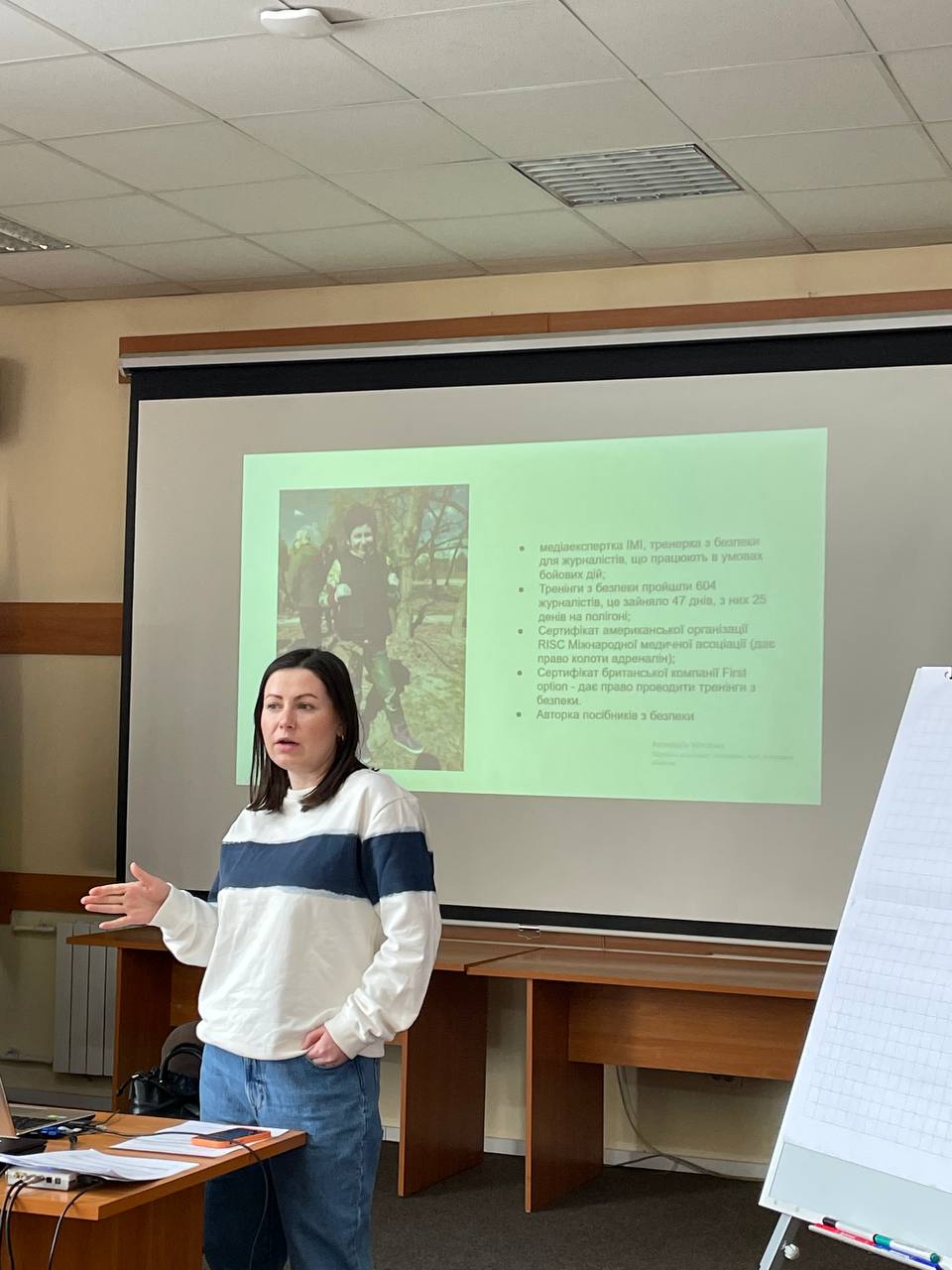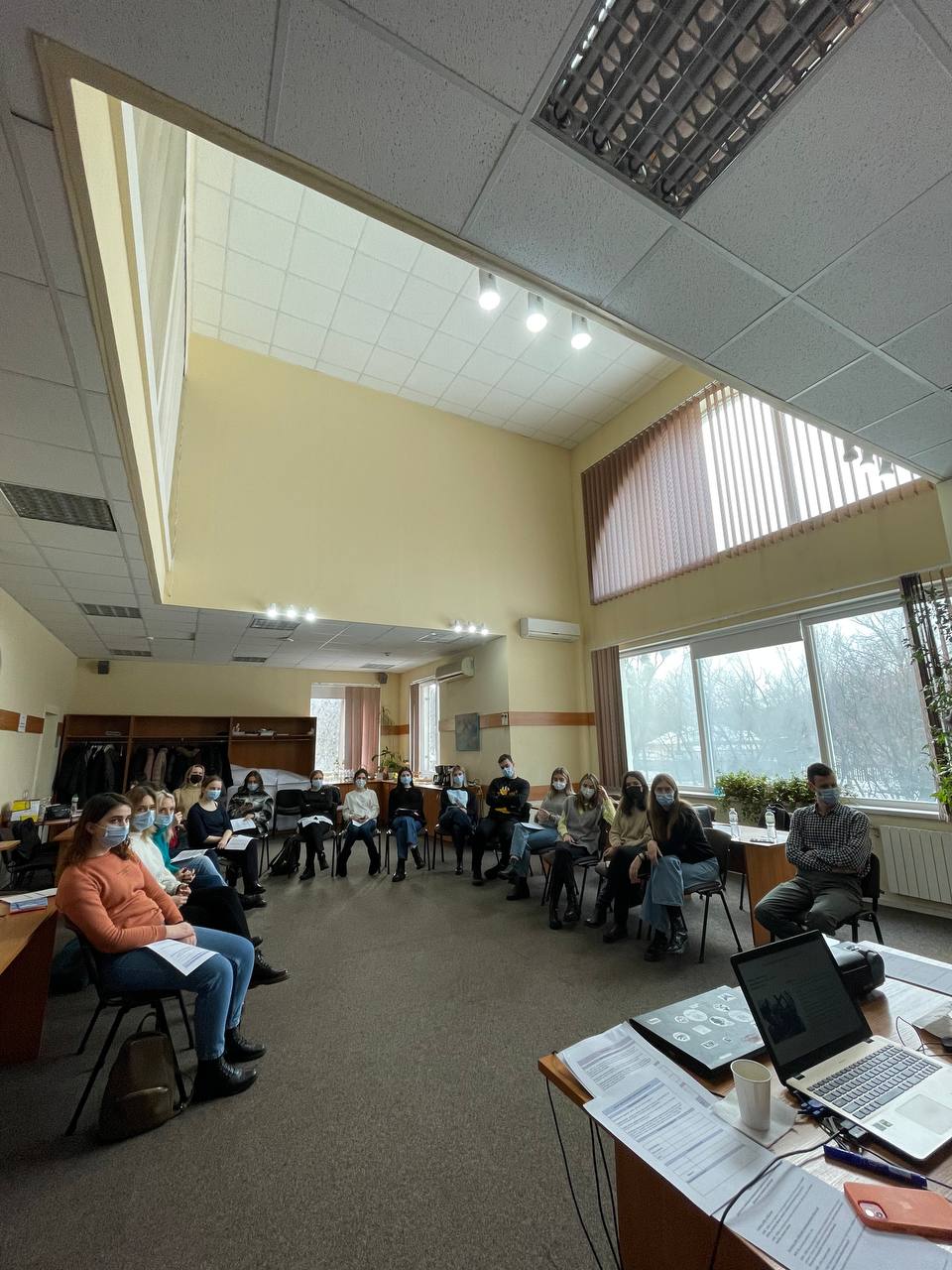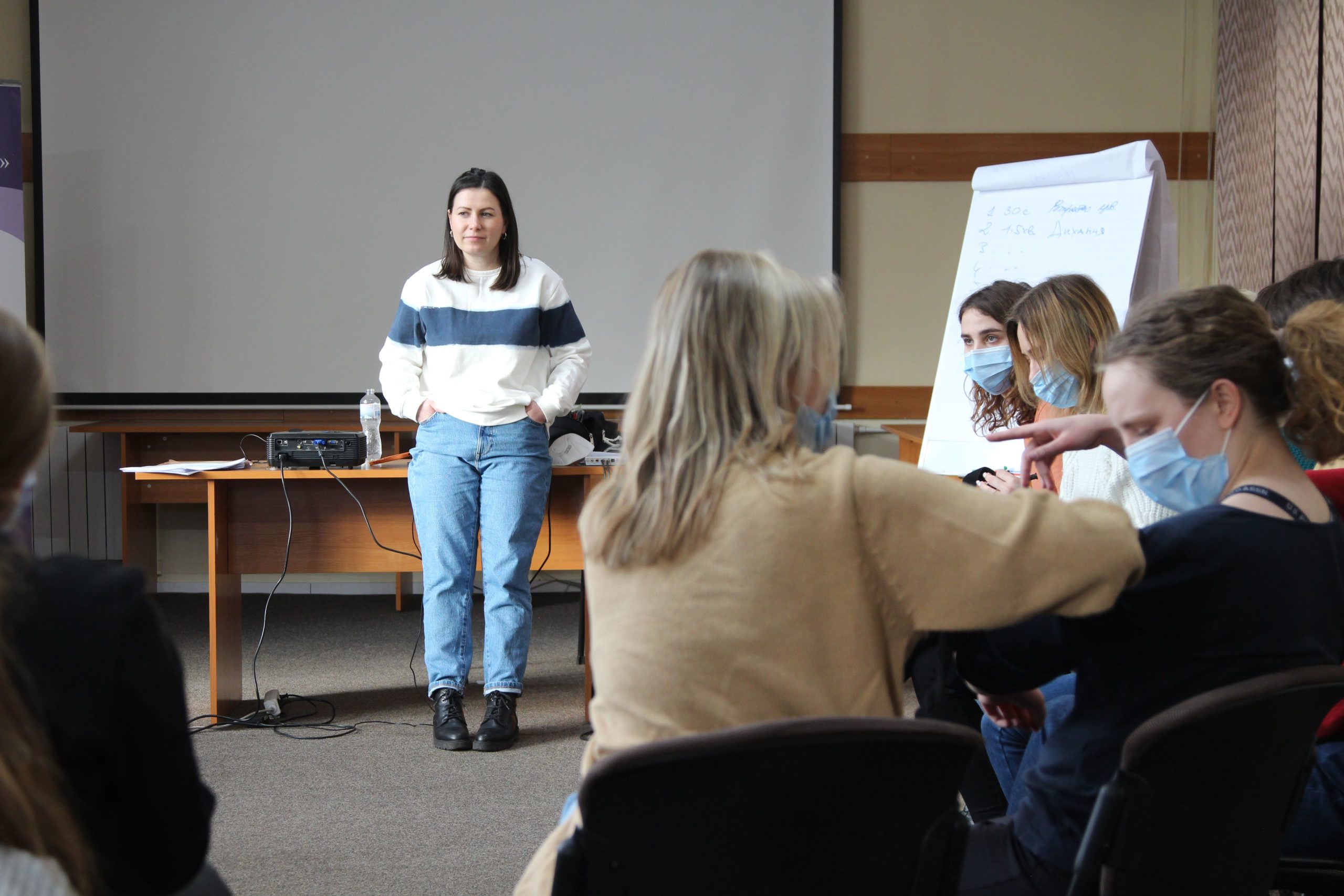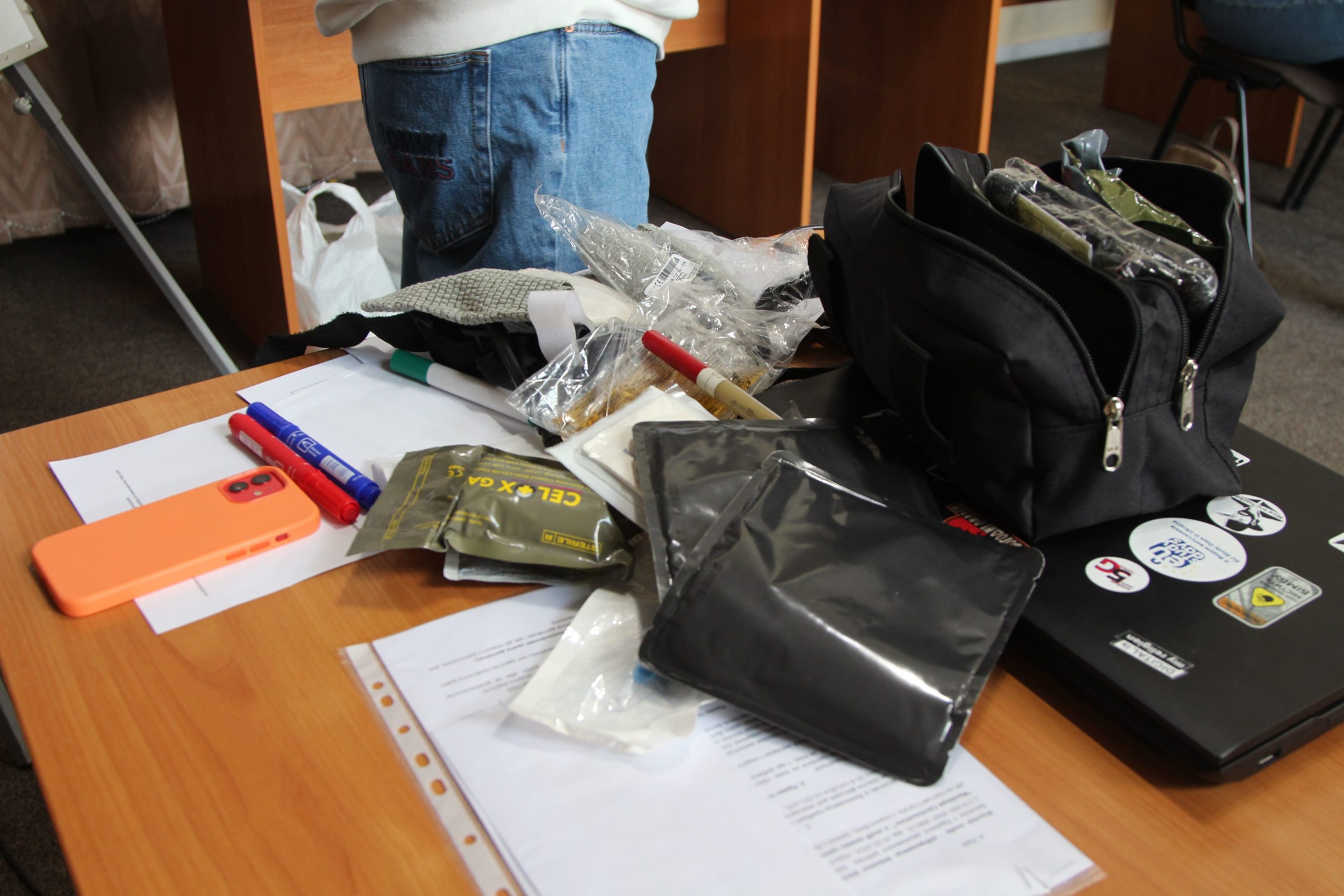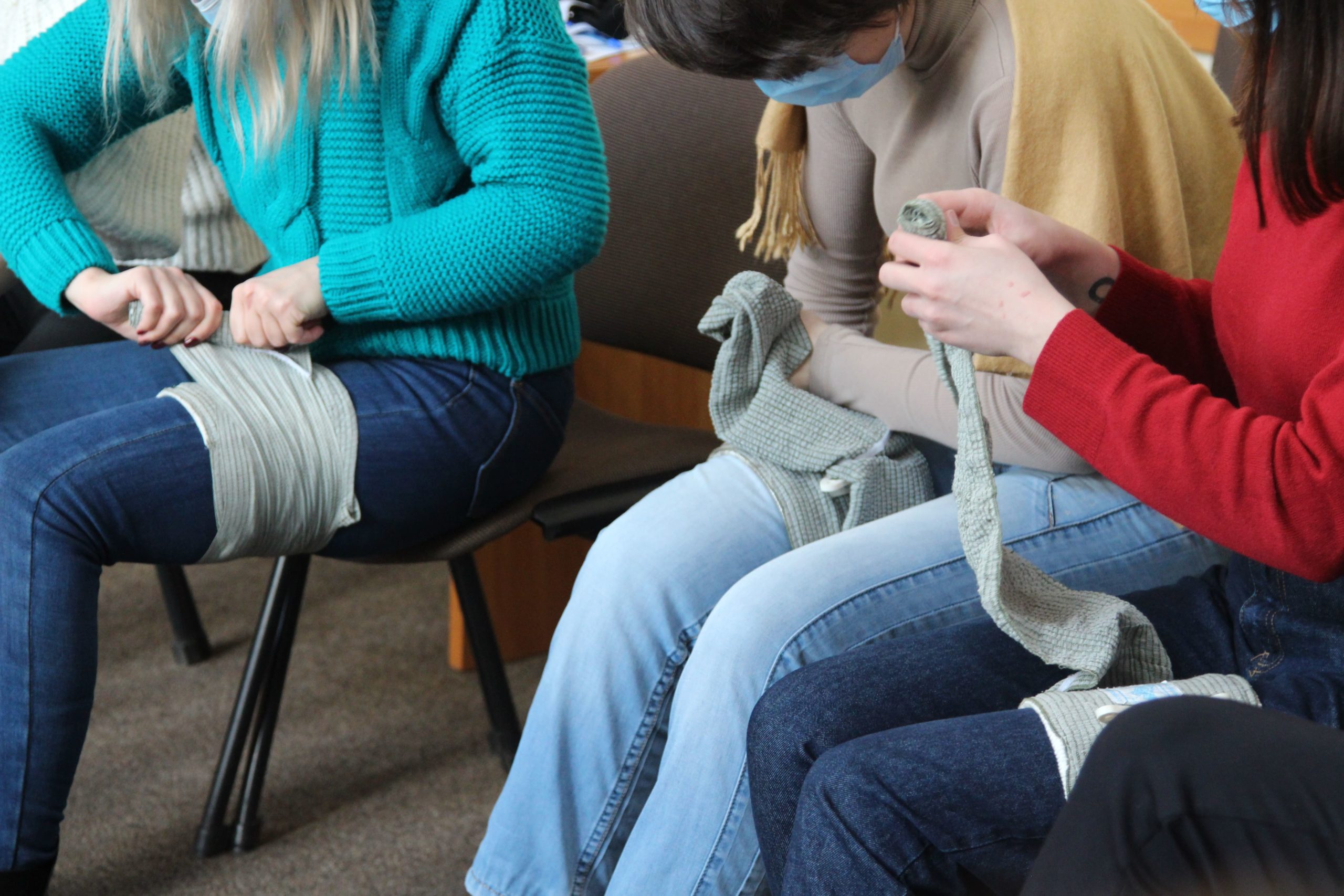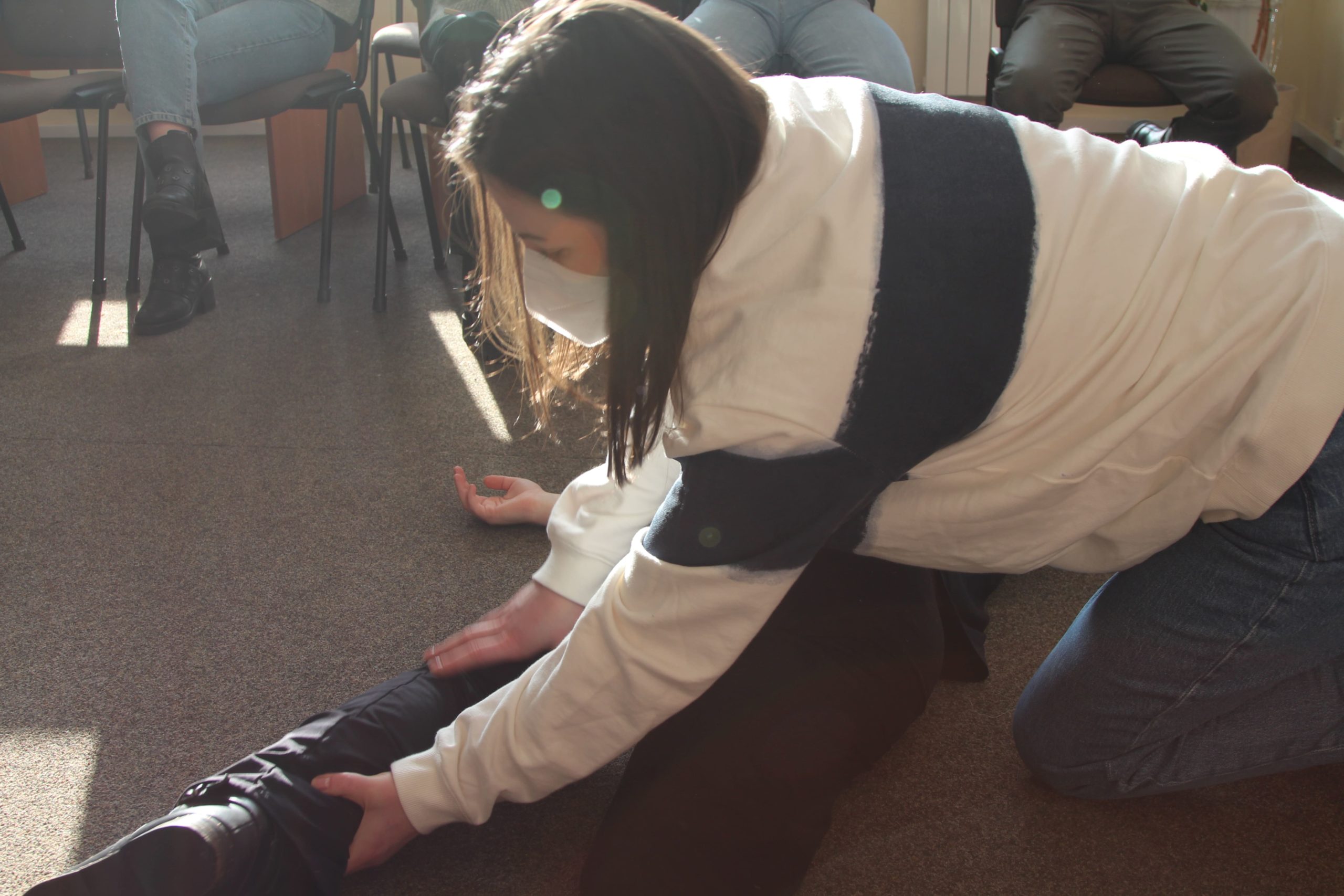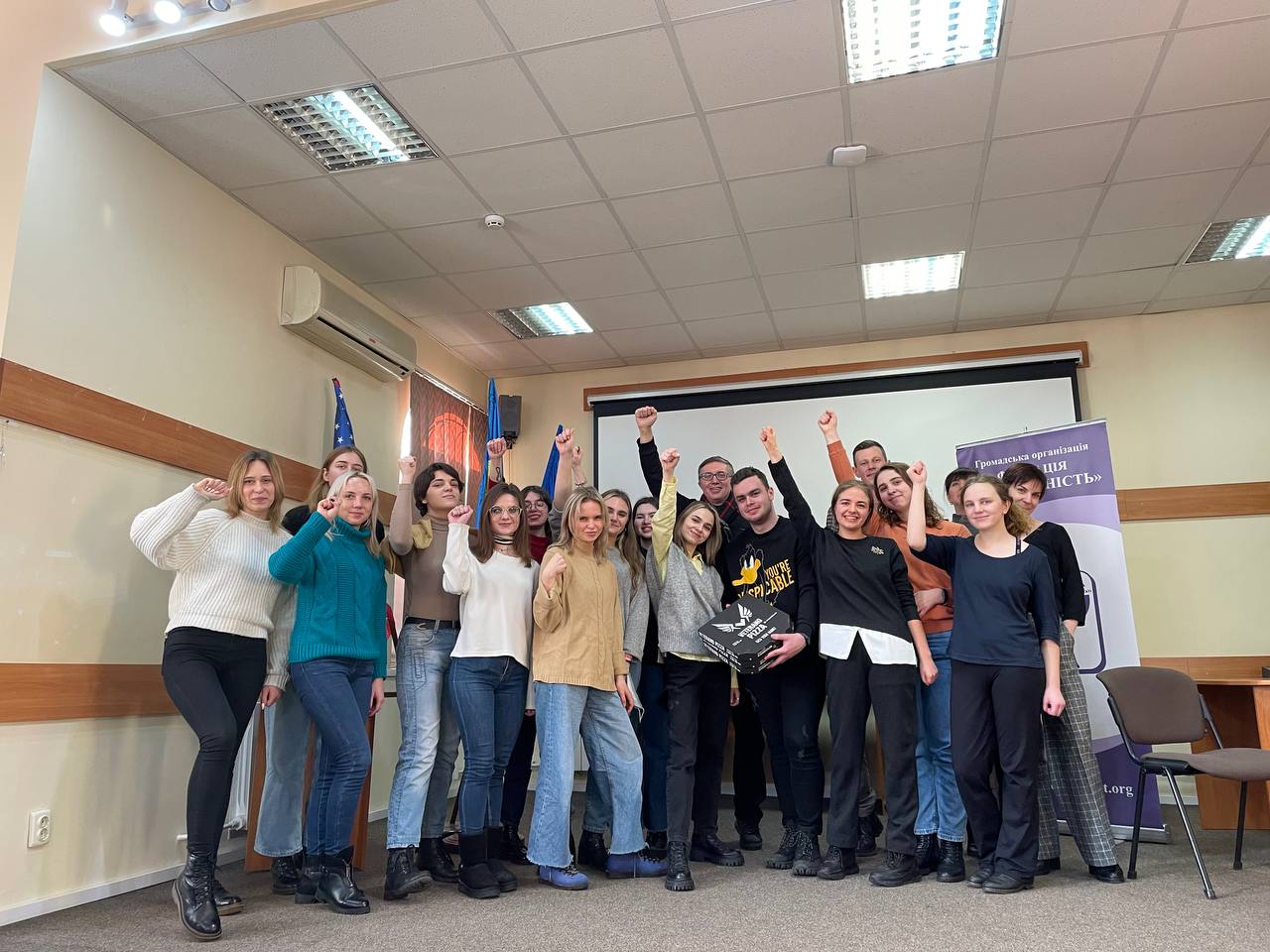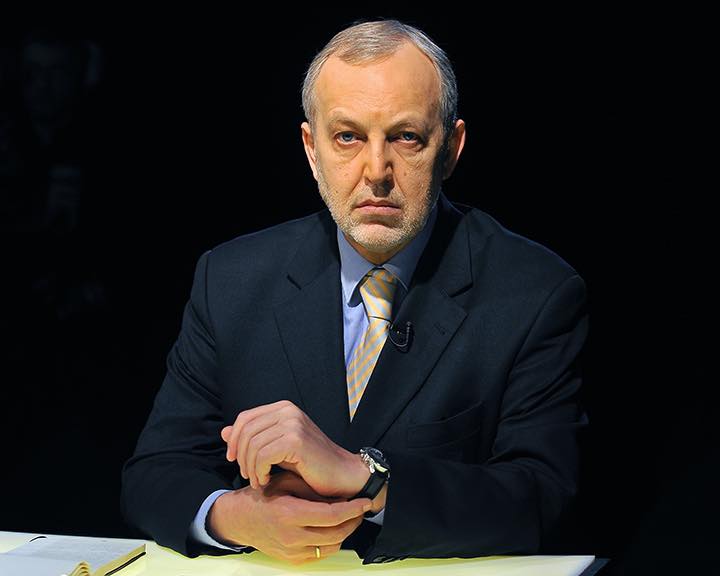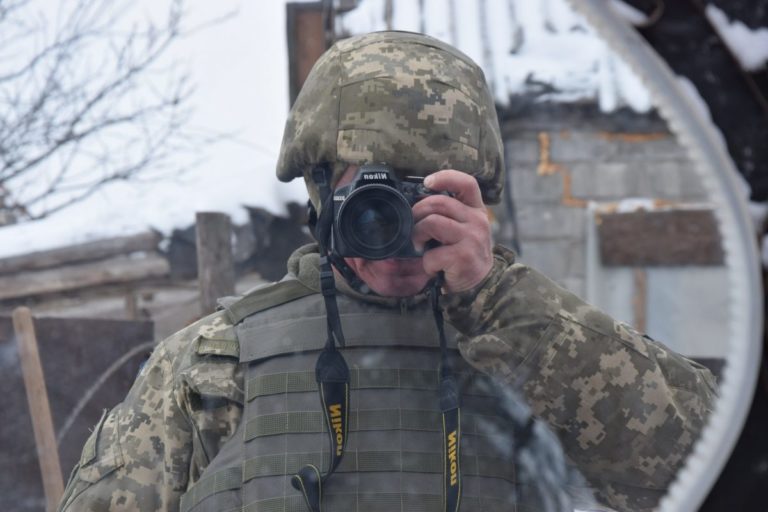Theoretical knowledge backed up by practical training forms a solid basis for ensuring journalists’ high-quality work under any conditions.
The first part of the School for Fixers held by Souspilnist Academy was theoretical: military correspondent Yevheniia Kytayiva and fixer Andriy Dubchak told the participants about fixers, their tasks, and how to organize their work.
During the second part of the School for Fixers we focused on developing new, practical skills in journalists’ work.
Iryna Zemliana, a coach in journalists’ safety at the Institute of Mass Information (IMI), conducted two training sessions on:
- how fixers can prepare for working in combat zones (formal procedures, organizing backpacks, contacts);
- how to appropriately provide first aid, including applying a tourniquet, stanching a wound and maintaining a safe body position until medics arrive.
In 2014 or 2016, journalists had no idea how to work in combat zones. Thanks to such training sessions and detailed training programs, many journalists learned about the specifics of such work, and they avoided making extra mistakes, which could have cost them dear, the coach said noting the relevance of training.
Talking about personal safety, the expert mentioned the following main rules:
- being aware of the situation and being wary,
- knowing about the most likely threats,
- avoid putting yourself in a vulnerable position,
- keeping a low profile.
Two basic rules will always help you: make sure you always know your whereabouts and have means of communication, Iryna Zemliana added.
As of today, more people have acquired the necessary skills and motivation to work as fixers.
We keep our fingers on the pulse.
